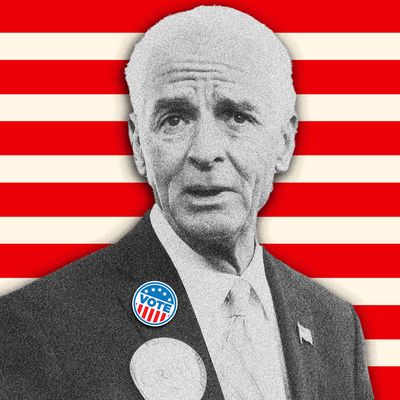
In a contest that had suspense mainly because of sparse and erratic polling, Florida congressman and ex-governor Charlie Crist decisively defeated the state’s agriculture commissioner Nikki Fried for the chance to take on Governor Ron DeSantis in November. Not long after polls closed, Crist led Fried by 25 points (60-35), and was also leading in all but three scattered midsize counties. DeSantis, who has been spending most of his time swaggering around the country campaigning for other Republican candidates, is considered a solid if not overwhelming favorite in the general election thanks to the Sunshine State’s recent pro-GOP trend, the incumbent’s positive job-approval ratings, and a gigantic campaign treasury ($142 million so far). If he wins, it’s widely expected he’ll run for president, even against Donald Trump.
In nominating Crist, however, Democrats went for a familiar figure with some theoretical bipartisan appeal and at least one gubernatorial victory under his belt, albeit back in 2006, when he was still a Republican. The upbeat and famously permatanned Crist was trailing Marco Rubio in a 2010 Senate primary when he decided to drop out and run as an independent; he finished second to Rubio, running ahead of Democratic nominee Kendrick Meek. After endorsing Barack Obama’s reelection in 2012, Crist became a full-fledged Democrat, and in the very bad Democrat year of 2014, he narrowly lost a gubernatorial comeback to Rick Scott, now Florida’s junior senator. Two years later, Crist won a St. Petersburg–based House seat, which he is giving up to challenge DeSantis.
Fried, who is currently the only statewide Democratic elected official in this suddenly red state, ran on the slogan of “Something New for Florida” to contrast herself to the warhorse Crist. In the wake of the national backlash against the Supreme Court’s decision abolishing the constitutional right to abortion, she tried to make an issue of Crist’s long-abandoned anti-abortion views from his Republican days, and in general hoped to become the symbol of an insurgency driven by women and younger voters (it didn’t hurt with the latter cohort that she had been a lobbyist for the marijuana industry). But in the end, Crist’s high name ID, financial advantage, backing from unions, and long-standing relationships with Black and Hispanic political leaders gave him an unbeatable edge in a race characterized by grim realism about the challenge of taking on and taking down a governor who combines Trump’s culture-war extremism with a much steadier governing style.
With Senate nominee Val Demings poised to challenge Rubio, Crist can form a solid, well-known, and well-funded Democratic ticket capable of an upset if lightning strikes, or if Republicans — like Democrats not long ago — begin to take this large and crucial state for granted. If Crist can somehow beat DeSantis, he will not only become the once-and-future governor of Florida, but a Democratic folk hero for the ages. At that point, his wandering political career would look blessed by angels.






























